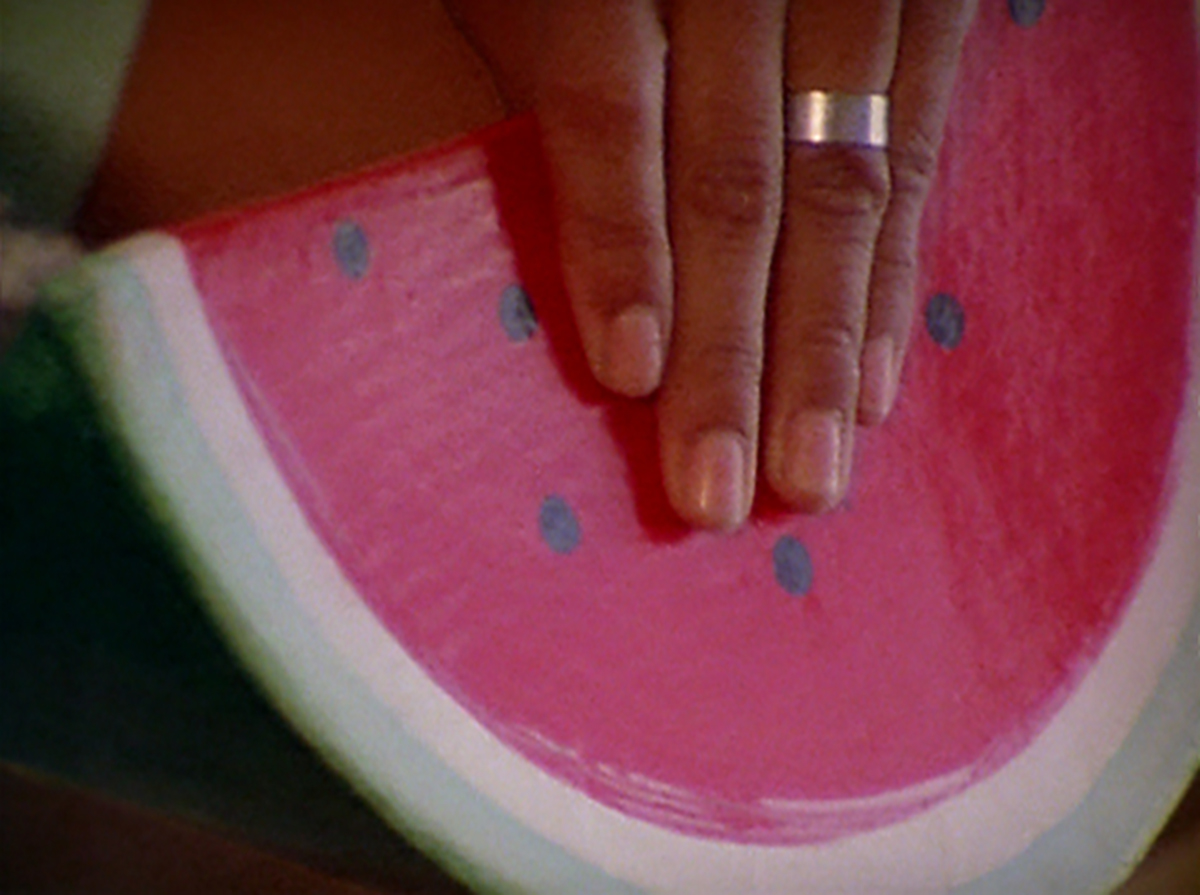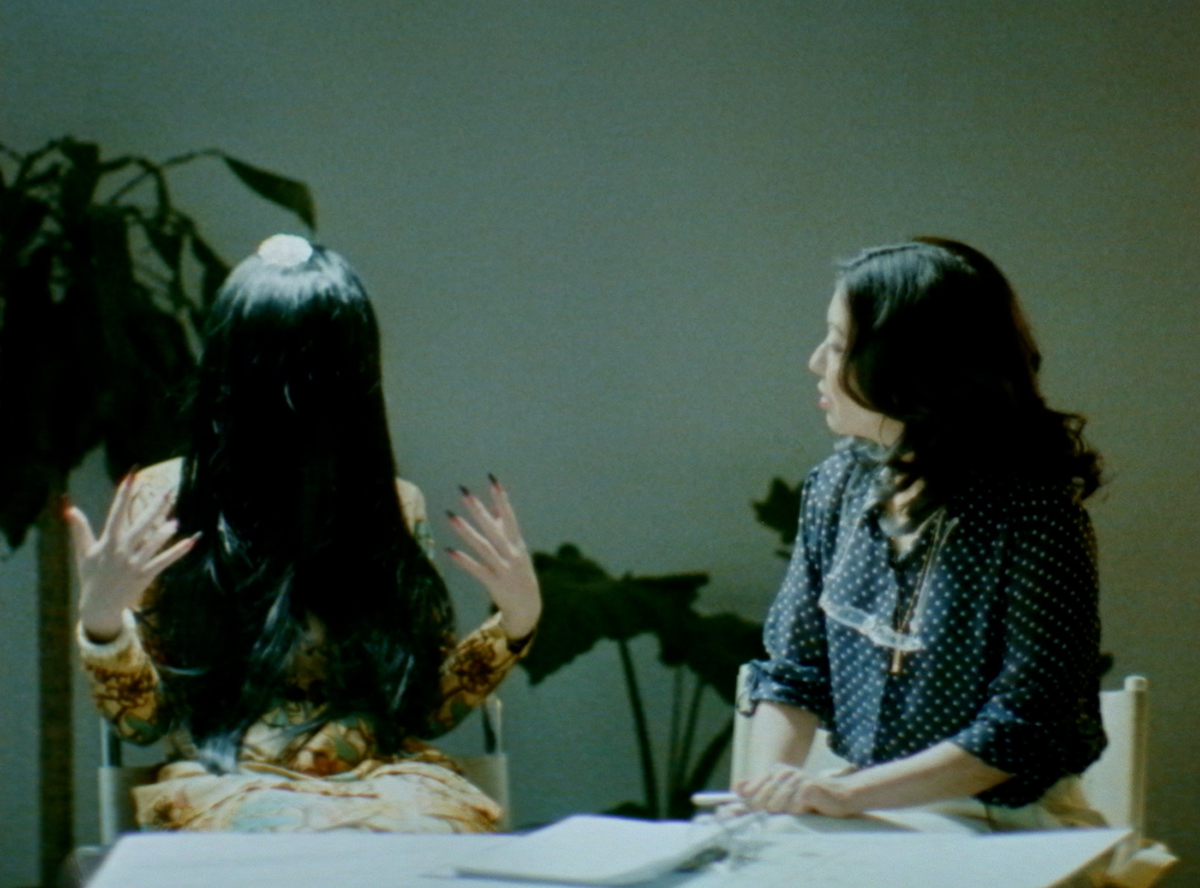Selection 12 - CHICK STRAND / BO WANG
In the presence of Bo Wang
Courtisane is een platform voor film en audiovisuele kunsten. In de vorm van een jaarlijks festival, filmvertoningen, gesprekken en publicaties onderzoeken we de relaties tussen beeld en wereld, esthetiek en politiek, experiment en engagement.
Courtisane is a platform for film and audiovisual arts. Through a yearly festival, film screenings, talks and publications, we research the relations between image and world, aesthetics and politics, experiment and engagement.
In the presence of Bo Wang

In Fake Fruit Factory pioneer Chick Strand seamlessly blends ethnography with avant-garde aesthetics, offering a profound exploration of human experiences. Her uniquely intimate gaze captures subjects through texture and movement. Shot from 1981 to 1985 she observes young Mexican women who create decorative papier-mâché fruit and vegetable for a small handicraft facility. The factory’s produce surmises biblical allusions, phallic symbols, and so on, though all is supplanted by a sharp sociological reading. Capitalism sells copies painted with realism, local bodies labour under external surveillance.

Narrated by the incarnate ghost of a deceased real hair donor. In the post-war era, the export of real hair wigs contributed to Asia’s economic development, with Hong Kong as a major hub. In its heyday in the 1960s, ‘Asian real hair’ was popular with wealthy U.S. women, but then the USA imposed an embargo on the product, now classified as ‘communist hair’. This is where the intricate and innovatively realised story begins: Starting with complex economical and sociopolitical contexts, it weaves a thread that runs through various historical and dreamlike staged levels.
Hong Kong was and is a space of in-between-ness — between East and West, between communism and capitalism. Perhaps that is why there are so many spooks in the city, one protagonist speculates. Just like the well-travelled ghost, an eternally wandering entity and contemporary witness of an imperial and colonialist past. (Annina Wettstein)